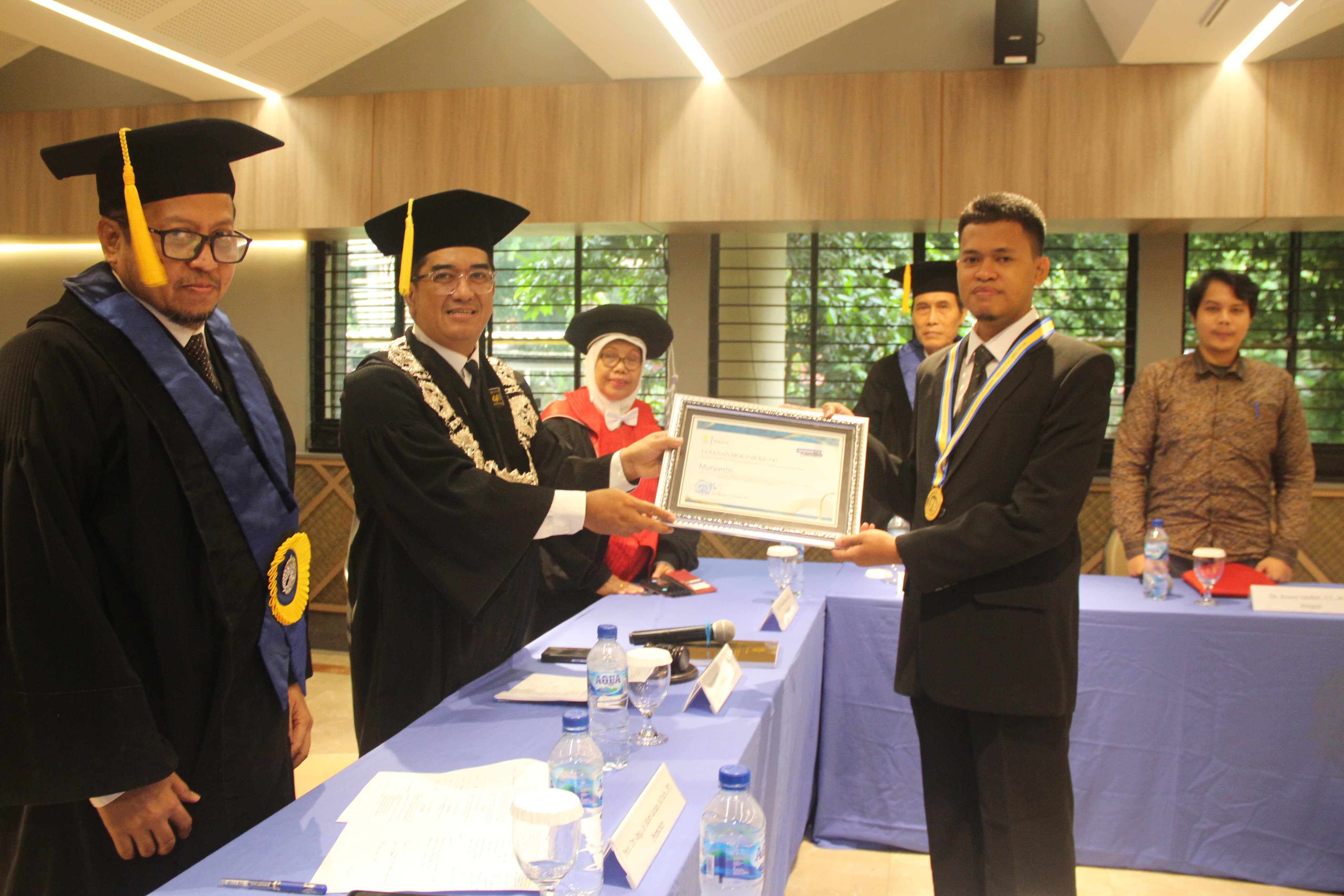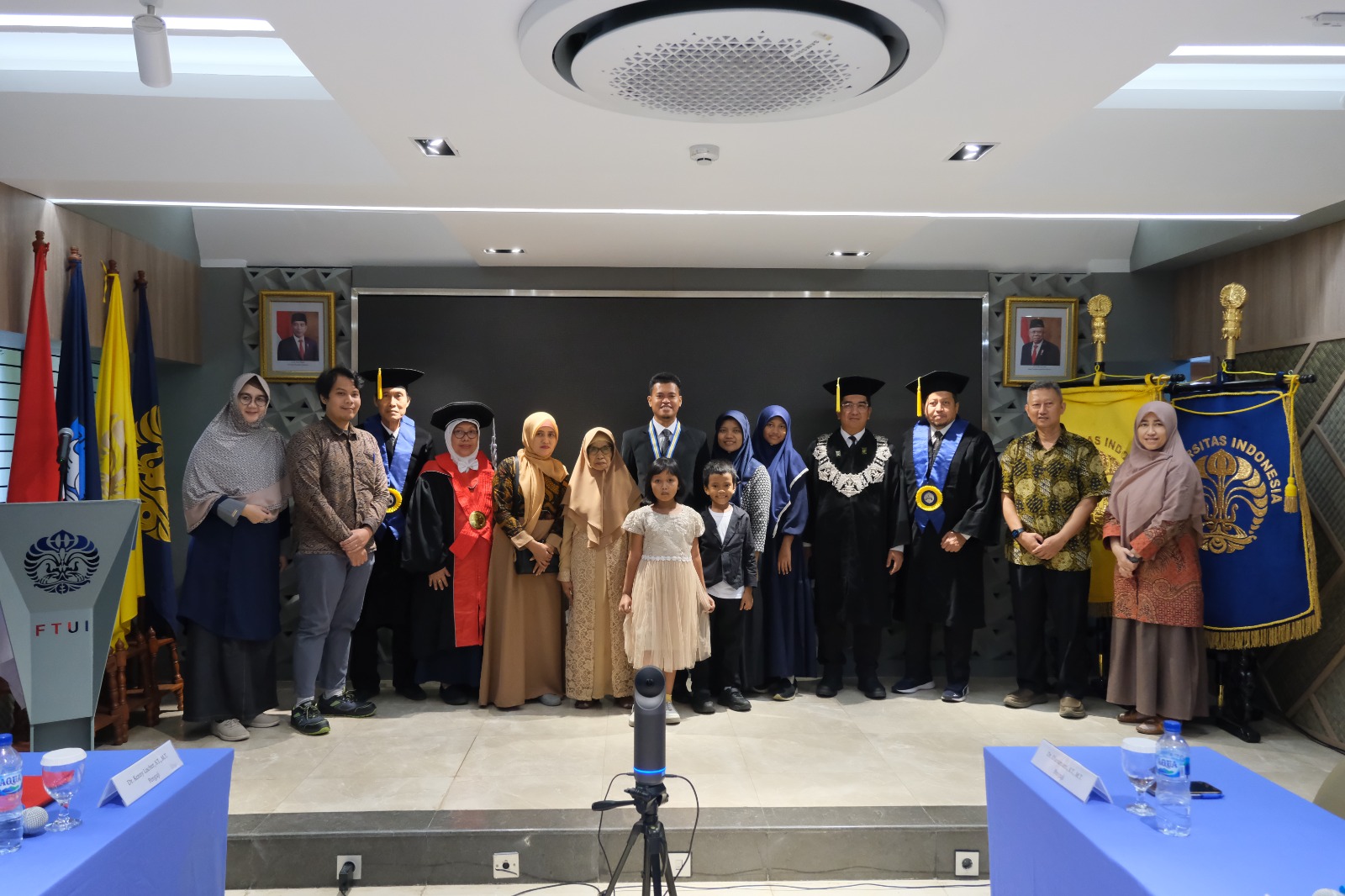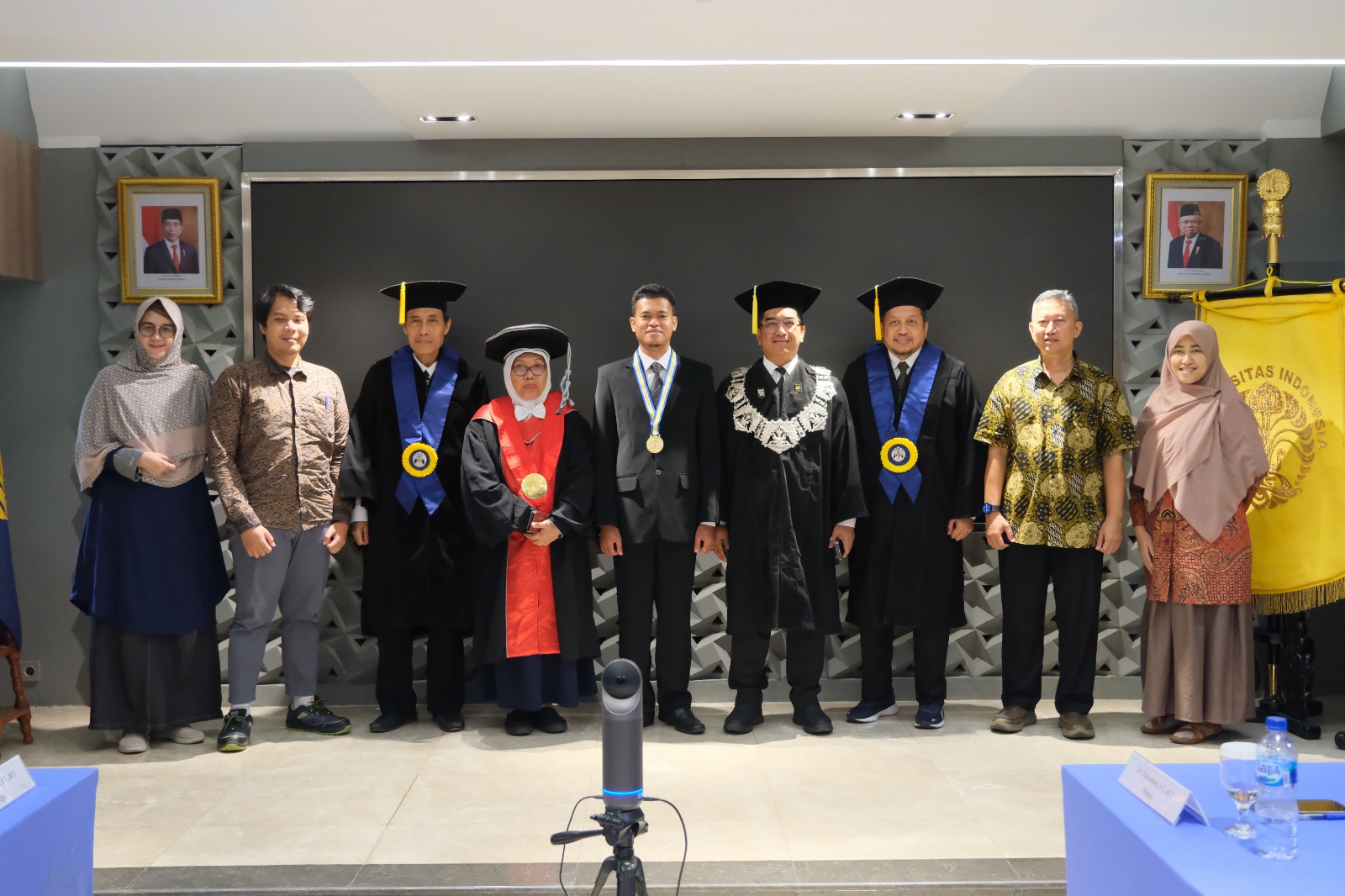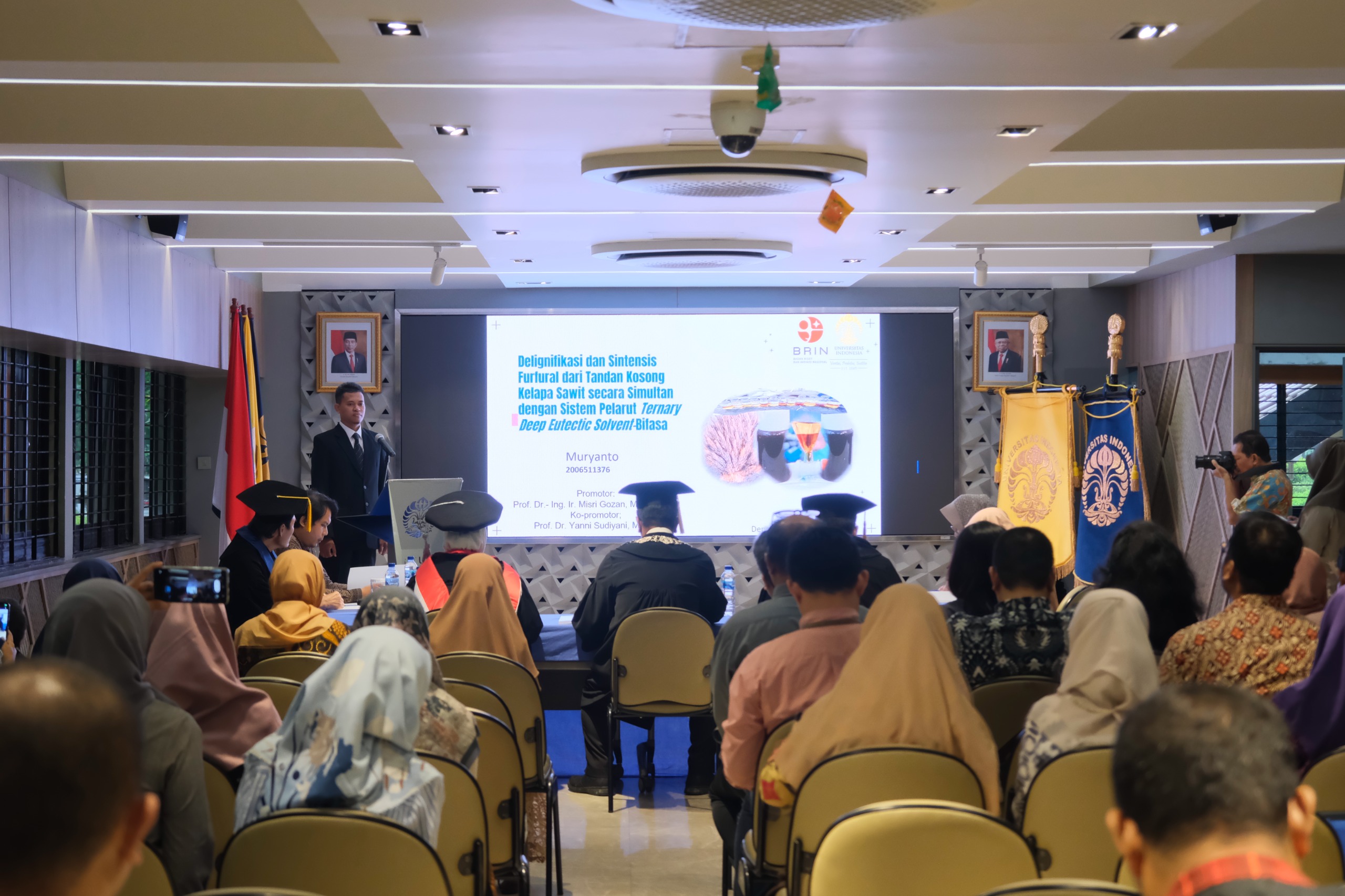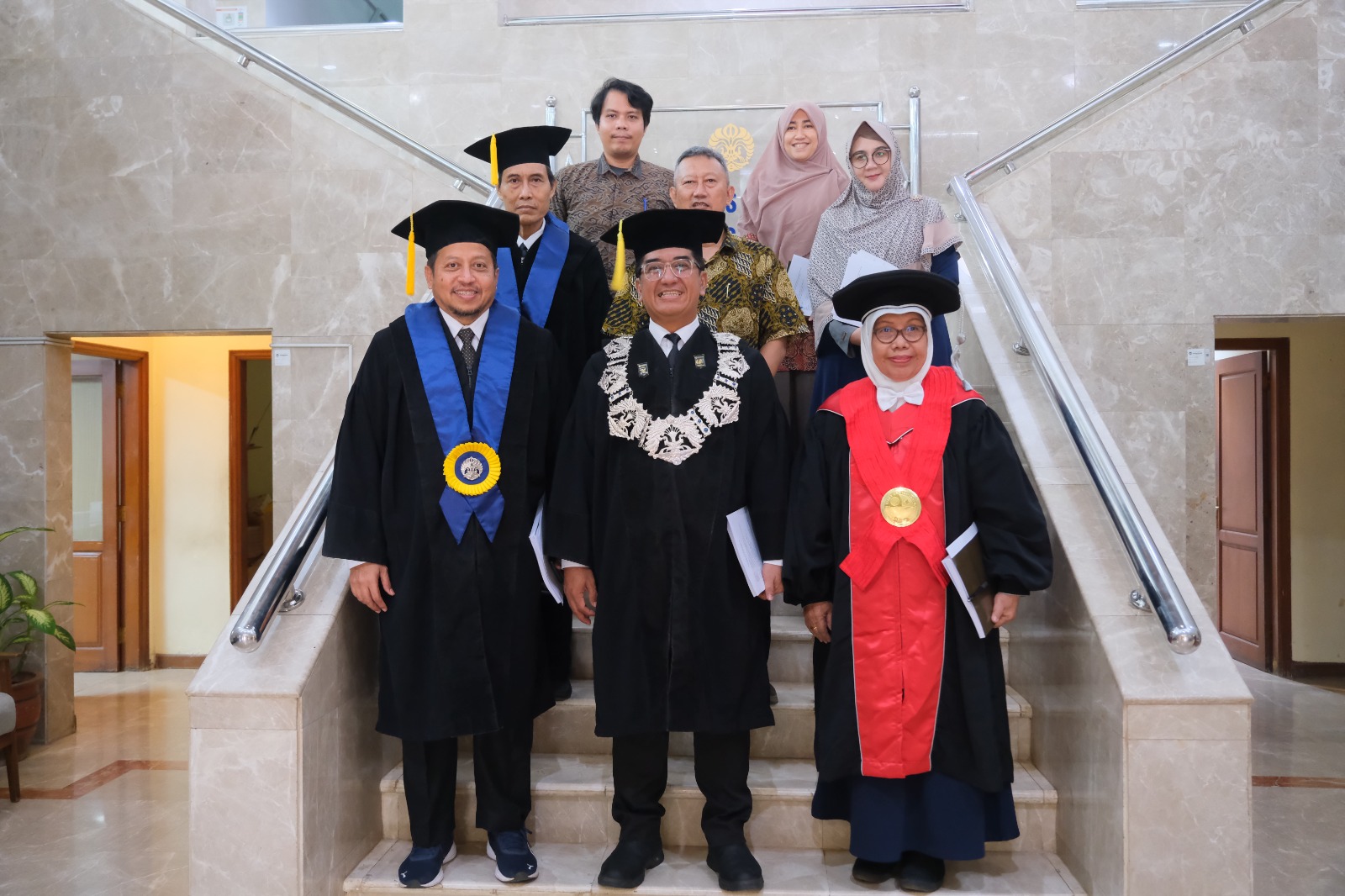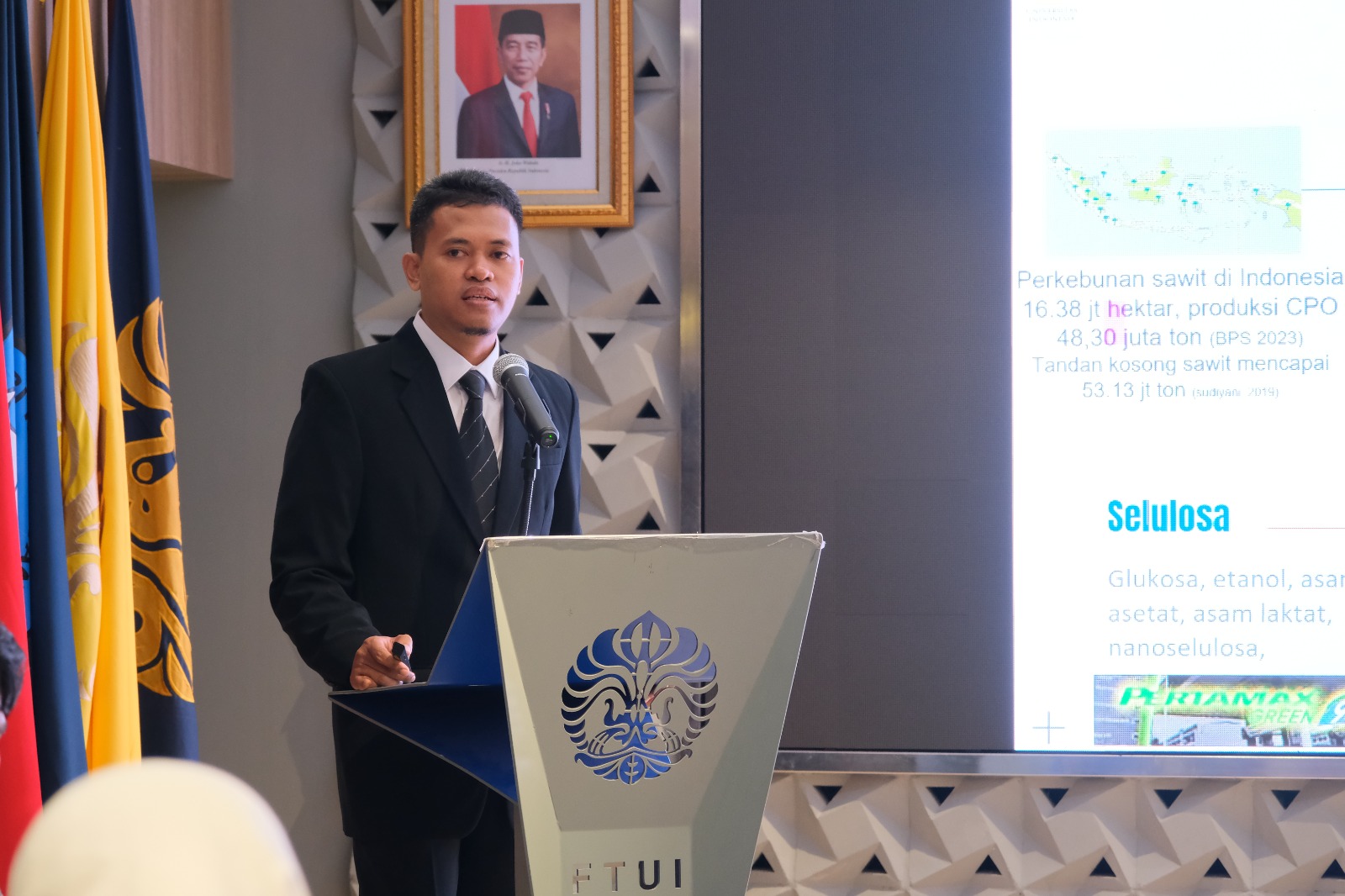Furfural is a promising biomass-based commodity. Derived from lignocellulosic biomass, furfural is a renewable material that can be used as a raw material for various industrial commodities, including as a solvent in petroleum processing, the production of nylon, pharmaceuticals, and agrochemicals.
Muryanto, a doctoral student in Chemical Engineering at FTUI, researched developing lignocellulosic biomass sourced from Empty Palm Oil Bunches (TKKS) into a raw material for producing furfural. This idea is presented in his dissertation, created as a requirement for his doctoral promotion, titled “Delignification and Production of Furfural from Empty Palm Oil Bunches Simultaneously with Ternary Deep Eutectic Solvent Biphasic System.” Muryanto’s doctoral promotion was held on June 25, 2024, in the Smart Meeting Room, Dean’s Building, Faculty of Engineering, Universitas Indonesia.
Furfural is a chemical compound known as a building block material that can be used as a solvent to separate saturated and unsaturated compounds in producing industrial chemicals and as a precursor. Currently, furfural production using mineral acid solvents still yields low results.
“The utilization of hemicellulose in TKKS to produce furfural requires two conversion stages: the hydrolysis of hemicellulose into xylose and the dehydration of xylose into furfural, which has so far used mineral acid catalysts such as sulfuric acid. Besides potentially causing environmental pollution, this process also requires equipment specifications that are corrosion-resistant. Therefore, several processes are being conducted to find more environmentally friendly solvents,” explained Muryanto.
This is a challenge in the biorefinery of lignocellulosic biomass, especially in furfural production. To increase the yield of furfural using more environmentally friendly solvents, the use of Deep Eutectic Solvents (DES) has proven to reduce environmental toxicity potential due to their biodegradable nature and reusability in subsequent processes.
“This research was conducted to study the synthesis of furfural derived from TKKS using Ternary DES biphasic to produce higher furfural yield compared to using the Ternary DES monophasic system. In the initial stage, binary DES will be synthesized from variations of Hydrogen Bond Acceptor (HBA) and Hydrogen Bond Donor (HBD) to identify the one that can delignify TKKS at 150°C for 30 minutes. This research also formulates Ternary DES consisting of choline chloride, oxalic acid, and ethylene glycol (CHOAEG) to produce furfural and delignify simultaneously. This research resulted in a 21% increase in furfural yield using Ternary DES biphasic compared to monophasic,” said Muryanto.
“I am confident that Dr. Muryanto’s research will significantly benefit the palm oil industry in Indonesia. This research not only offers an environmentally friendly solution to palm oil waste issues but also opens opportunities for technological development to support the sustainability of the palm oil industry and provide significant economic benefits to society. We appreciate Dr. Muryanto for producing innovative and applicable research. We hope this research will contribute positively to the development of renewable energy and sustainable industries,” said FTUI Dean, Prof. Dr. Ir. Heri Hermansyah, S.T., M.Eng., IPU.
With his dissertation, Dr. Muryanto achieved a cumulative grade point average (GPA) of 3.94 and earned a cum laude distinction. Additionally, Dr. Muryanto became the 72nd doctor in the Chemical Engineering program and the 547th doctor at FTUI.
Dr. Muryanto’s doctoral promotion was led by Prof. Dr. Ir. Heri Hermansyah, S.T., M.Eng., IPU., with promoter Prof. Dr.-Ing. Ir Misri Gozan, M.Tech.IPU., and co-promoter Prof. Dr. Yanni Sudiyani, M.Agr., along with examiners Prof. Dr.ir. Dijan Supramono, M.Sc., Prof (Ris). Ir. Didiek Hadjar Goenadi, Msc., Dr. Dianursanti, ST. MT., Dr. Tania Surya Utami, ST. MT., Dr. Kenny Lischer, ST. MT.
***
Public Communication Office
Faculty of Engineering Universitas Indonesia

